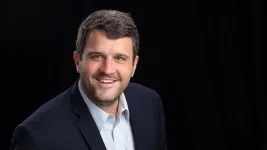In the study, 241 participants with severe brain injury who do not respond when given a simple instruction were assessed with functional MRI (fMRI), electroencephalography (EEG), or both tests. During these tests, participants heard instructions, such as “imagine opening and closing your hand” followed, 15-30 seconds later by “stop imagining opening and closing your hand.” The fMRI and EEG brain responses showed that 60 (25 percent) of participants repeatedly followed this instruction covertly over minutes. According to the authors of the study, published August 15 in the New England Journal of Medicine, patients who demonstrate this phenomenon, called cognitive motor dissociation, understand language, remember instructions and can sustain attention, even though they appear unresponsive. For these patients, cognitive (i.e., thinking) abilities exceed, and are therefore dissociated from, motor abilities.
“Some patients with severe brain injury do not appear to be processing their external world. However, when they are assessed with advanced techniques such as task-based fMRI and EEG, we can detect brain activity that suggests otherwise,” said lead study author Yelena Bodien, PhD, an investigator for the Spaulding-Harvard Traumatic Brain Injury Model Systems and Massachusetts General Hospital’s Center for Neurotechnology and Neurorecovery. “These results bring up critical ethical, clinical, and scientific questions – such as how can we harness that unseen cognitive capacity to establish a system of communication and promote further recovery?”
Following a significant brain injury, individuals may have a disorder of consciousness, which can include coma, a vegetative state or minimally conscious state. Since the first study demonstrating cognitive motor dissociation in individuals with disorders of consciousness was published nearly two decades ago, centers around the world have found that this condition occurs in approximately 15 to 20 percent of unresponsive patients. However, the current study suggests it could be present in 25 percent of patients, or even more. Cognitive motor dissociation was most common in participants assessed with fMRI and EEG, suggesting that multiple tests, using different approaches, may be required to ensure consciousness is not missed.
This study included participant data from six different sites spanning the United States, United Kingdom, and Europe collected over approximately 15 years. Each site developed and rigorously tested their methods for detecting cognitive motor dissociation to minimize the possibility that a positive result was obtained spuriously. Some sites recruited participants from the intensive care unit just days after they sustained a severe brain injury, often from a trauma such as a car accident, a stroke or cardiac arrest. Other sites included participants who were months to years after their injury or illness and were living in nursing facilities or at home.
In addition to studying the 241 participants who did not respond to simple instructions, the research included 112 participants who did respond to simple instructions at the bedside. This latter group would be expected to perform well on the fMRI and EEG tests, but, in 62 percent of those participants, researchers did not detect brain responses suggesting they were covertly following instructions. The authors note that this finding may reflect the complexity of the fMRI and EEG tasks and underscores the high-level of thinking skills required to perform them.
Just knowing that somebody is cognitively aware and more capable than is immediately apparent, can alter their clinical care substantially. “Families have told us that once a positive test result revealing cognitive motor dissociation is shared with the patients’ clinical team, it can change the way that the team interacts with their loved one,” Bodien said. “Suddenly, the team is paying more attention to subtle behavioral signs that could be under volitional control, or speaking to the patient, or playing music in the room. On the other hand, failing to detect cognitive motor dissociation can have serious consequences, including premature withdrawal of life support, missed signs of awareness, and lack of access to intensive rehabilitation.”
“We find that this kind of sharp dissociation of retained cognitive capabilities and no behavioral evidence of them is not uncommon. I think we now have an ethical obligation to engage with these patients, to try to help them connect to the world,” said senior study author Nicholas Schiff, MD, the Jerold B. Katz Professor of Neurology and Neuroscience in the Feil Family Brain and Mind Research Institute at Weill Cornell Medicine and administrative lead of the consortium. “What we need here is what we in our consortium have been trying to get started for twenty years: a sustained effort to benefit patients who have disorders of consciousness with systematic medical research, technology development, and better clinical infrastructure.
One limitation of the study was that the testing was not standardized; each of the study sites tested patients in their own way, creating variability within the data. In addition, many participants were enrolled because family members heard about the study and reached out to researchers. This recruitment approach limits the researchers’ ability to determine the global prevalence of cognitive motor dissociation. There are no professional guidelines that stipulate how cognitive motor dissociation should be assessed and most centers are unable to provide this testing; clinical translation will need to be a focal point for future research.
“To continue our progress in this field, we need to validate our tools and to develop approaches for systematically and pragmatically assessing unresponsive patients so that the testing is more accessible”, said Bodien. “The Emerging Consciousness Program at Mass General Hospital offers these evaluations clinically, however elsewhere, a patient may have to enroll in a research study to get tested. We know that cognitive motor dissociation is not uncommon, but resources and infrastructure are required to optimize detection of this condition and provide adequate support to patients and their families.”
The researchers added that the findings may spur research of specific interventions to foster effective communication, including brain-computer interfaces.
A separate team of Mass General Brigham researchers are investigating brain-computer interfaces (BCIs) as a potential intervention that may one day have applications to many types of patients unable to effectively communicate. Another study published in the same August 15th issue of New England Journal of Medicine from co-author Leigh Hochberg, MD, PhD of Mass General Hospital's Department of Neurology and Center for Neurotechnology and Neurorecovery, reported that a man with ALS and severely impaired speech used an investigational BCI implant to convert his attempted speech into text on a screen. about that study, and about the BrainGate clinical trials for which Hochberg serves as principal investigator.
Authorship: In addition to first author Bodien, Mass General Brigham co-authors at the time of the study include Camille Chatelle PhD; Phoebe K Lawrence BS; Anogue Meydan BS; William R Sanders BS; Brian L Edlow MD; and Joseph T Giacino PhD. Other co-authors include senior and corresponding Schiff; Judith Allanson, FRCP, PhD; Paolo Cardone MS; Arthur Bonhomme MD; Jerina Carmona MPH; Srivas Chennu PhD; Mary Conte PhD; Stanislas Dehaene PhD; Paola Finoia PhD; Gregory Heinonen BS; Jennifer Hersh BME; Evelyn Kamau MSc; Victoria C. Lupson; Benjamin Rohaut MD PhD; Jacobo D Sitt MD PhD; Andrea Soddu PhD; Mélanie Valente BS; Angela Velazquez MD; Henning U Voss PhD; Athina Vrosgou MSc; Jan Claassen MD; Joseph J Fins MD; Olivia Gosseries PhD; Steven Laureys MD PhD; David Menon MD; Lionel Naccache MD PhD; Adrian M Owen PhD; John Pickard MChir; Emmanuel A Stamatakis PhD; Aurore Thibaut PhD; Jonathan D Victor MD PhD; and Emilia Bagiella PhD.
Funding: The study was funded by the James S. McDonnell Foundation. Bodien is supported by grants from the National Institute on Disability, Independent Living, and Rehabilitation Research: H133A120085; 90DPTB0011; and 90DPTB0027.
Disclosures: Disclosure forms are available with full text of this article at NEJM.org
Paper cited: Bodien, YG et al. “Cognitive Motor Dissociation in Disorders of Consciousness.” New England Journal of Medicine. DOI: 10.1056/NEJMoa2400645
###
About Mass General Brigham
Mass General Brigham is an integrated academic health care system, uniting great minds to solve the hardest problems in medicine for our communities and the world. Mass General Brigham connects a full continuum of care across a system of academic medical centers, community and specialty hospitals, a health insurance plan, physician networks, community health centers, home care, and long-term care services. Mass General Brigham is a nonprofit organization committed to patient care, research, teaching, and service to the community. In addition, Mass General Brigham is one of the nation’s leading biomedical research organizations with several Harvard Medical School teaching hospitals. For more information, please visit massgeneralbrigham.org.
END



